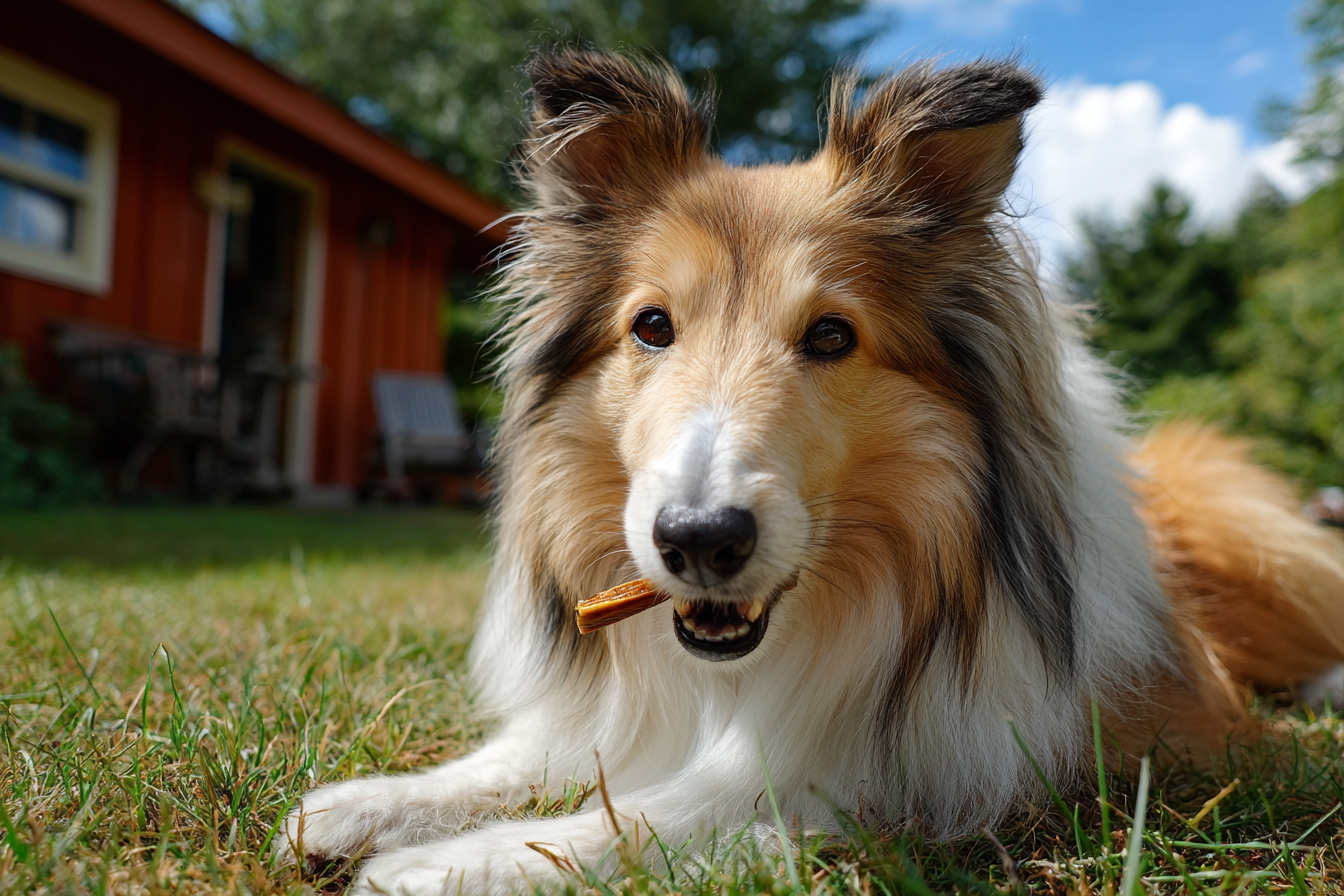Taking care of your Shetland Sheepdog’s dental health is essential for their overall well-being. Just like humans, dogs can suffer from dental issues that cause pain, infections, and more serious health complications if neglected. Shelties, with their beautiful double coats and charming personalities, deserve a healthy smile to match. In this article, we’ll explore why dental health care is so important for your Shetland Sheepdog and provide practical tips for keeping their teeth and gums in top shape.
Why Dental Health Is Important for Shetland Sheepdogs
Dental health is much more than a bright smile; it impacts your dog’s quality of life and longevity. Shetland Sheepdogs are prone to dental problems such as plaque buildup, tartar, gingivitis, and periodontal disease. These conditions can lead to discomfort, difficulty eating, and even systemic infections affecting the heart, kidneys, and liver if bacteria from the mouth enter the bloodstream.
Maintaining excellent dental hygiene helps prevent tooth decay and gum disease while avoiding bad breath and painful oral infections. Regular attention to your Sheltie’s teeth also means you can detect early problems before they escalate into costly and stressful situations.
Daily Toothbrushing Techniques
One of the best ways to keep your Shetland Sheepdog’s teeth clean is through daily brushing. While some dogs tolerate brushing better than others, patience and consistency are key. Start slowly by introducing your dog to the toothbrush and toothpaste. Use a pet-safe toothpaste with flavors like poultry or peanut butter, as human toothpaste can be harmful to dogs.
- Choose the right toothbrush: Use a small, soft-bristled toothbrush designed for dogs or a finger brush for better control.
- Build tolerance: Let your Sheltie lick the toothpaste off your finger first, then gradually introduce the brush.
- Brush gently: Lift your dog’s lips to expose the teeth and gums, and brush in small circular motions, focusing on the gum line where plaque tends to accumulate.
- Keep sessions brief: Aim for about 2 minutes, even if you need to break it up into short sessions initially.
Brushing daily is ideal, but even a few times a week can make a significant difference in preventing plaque buildup.
Best Dental Chews and Treats for Shelties
Dental chews and treats can complement brushing by helping to mechanically remove tartar and stimulate saliva production, which naturally cleans the mouth. When selecting dental chews, look for options approved by the Veterinary Oral Health Council (VOHC) as their efficacy is verified.
Here are some recommended types of dental chews:
- Rawhide chews: Good for scraping off plaque but supervise your dog to avoid choking hazards.
- Dental-specific treats: Formulated with abrasive textures and enzymes to reduce plaque formation.
- Natural chews: Items like bully sticks or pig ears with some dental benefit, but should be given in moderation.
Remember, treats should be part of a balanced diet, so monitor the quantity to prevent excessive calorie intake.
Recognizing Signs of Oral Disease
Early detection of dental problems can save your Sheltie from unnecessary pain. Be vigilant for these common signs:
- Bad breath that persists despite brushing
- Red, swollen, or bleeding gums
- Loss of appetite or difficulty chewing
- Excessive drooling
- Loose, broken, or missing teeth
- Pawing at the mouth or face
If you notice any of these symptoms, it’s time to consult your veterinarian. Untreated oral diseases can progress and affect other organs, so timely intervention is crucial.
When to Seek Veterinary Dental Care
Regular veterinary check-ups should include an oral examination. Your vet can identify early stages of dental disease that might not be obvious to you. Professional dental cleaning under anesthesia is often necessary for thorough plaque and tartar removal, especially below the gum line where brushing can’t reach.
Veterinary care is also important if your dog experiences pain, tooth fractures, or infections. Your vet might recommend X-rays to assess tooth roots and jaw bone health and provide treatment options such as extractions or antibiotic therapy.
Preventative Dental Care Tips for Shetland Sheepdogs
Here are some additional recommendations to help you maintain your Sheltie’s oral health:
- Regular veterinary visits: Schedule dental check-ups at least once a year.
- Provide chew toys: Choose safe toys designed to promote dental health and prevent destructive chewing.
- Use dental rinses or water additives: These help reduce bacterial buildup and freshen breath between brushings.
- Monitor diet: Avoid sugary or sticky treats that can contribute to plaque formation.
- Stay consistent: Good dental health is a daily commitment that pays off with your dog’s comfort and happiness.
Keeping Your Shetland Sheepdog’s Smile Bright
Establishing a dental health care routine for your Shetland Sheepdog ensures that they stay pain-free and enjoy a longer, healthier life. Combining daily toothbrushing with proper dental treats, regular vet checkups, and watching for warning signs creates a comprehensive dental care plan. Your Sheltie’s loving nature and joyful presence deserve the best care, including a healthy, confident smile to show off at every walk in the park.







